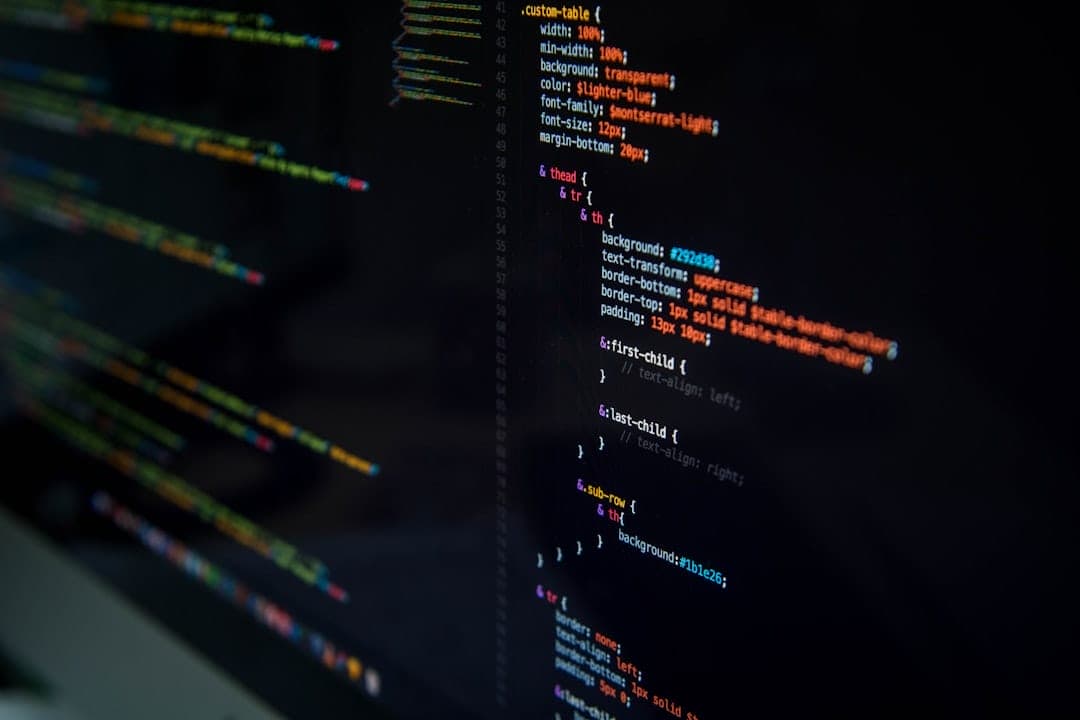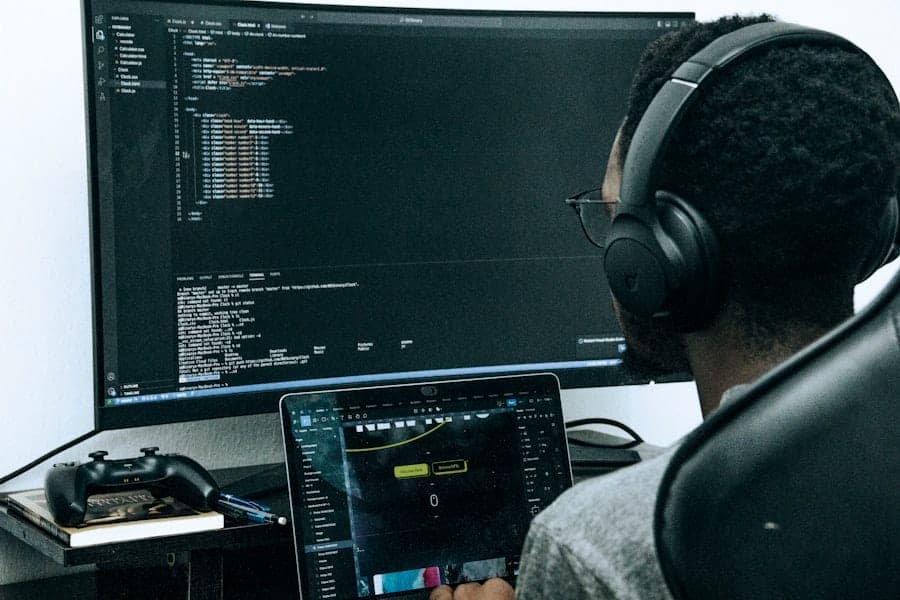
WordPress coders, often referred to as developers, play a pivotal role in the creation and maintenance of websites built on the WordPress platform. Their expertise encompasses a wide range of skills, including PHP programming, HTML, CSS, and JavaScript, which are essential for customizing themes and plugins. A WordPress coder is not merely a technician; they are problem solvers who understand the intricacies of the WordPress ecosystem.
They can transform a basic template into a fully functional website tailored to specific business needs, ensuring that the site is not only visually appealing but also user-friendly and optimized for search engines. Moreover, WordPress coders are adept at troubleshooting issues that may arise during the development process or after the site goes live. They possess a deep understanding of the WordPress core, which allows them to identify and resolve bugs efficiently.
This skill set is crucial, as even minor coding errors can lead to significant functionality problems or security vulnerabilities. Additionally, a proficient WordPress coder stays updated with the latest trends and updates in the WordPress community, ensuring that the websites they develop are built on best practices and are compatible with new features and security patches.
Key Takeaways
- WordPress coders play a crucial role in developing and maintaining websites using the WordPress platform.
- When looking for the right WordPress coder, consider their experience, portfolio, and communication skills to ensure a successful collaboration.
- Setting clear goals and expectations for your website project is essential for guiding the WordPress coder and achieving the desired outcome.
- Budgeting for WordPress coding services should take into account the complexity of the project, the coder’s expertise, and any additional maintenance or support needed.
- Effective communication with your WordPress coder is key to ensuring that your vision is understood and implemented accurately.
Finding the Right WordPress Coder for Your Project
Finding the right WordPress coder for your project can be a daunting task, given the plethora of options available in the market. One effective approach is to start by defining your project requirements clearly. This includes understanding the scope of work, desired functionalities, and any specific design elements you envision for your website.
Once you have a clear picture of what you need, you can begin your search by exploring various platforms where freelancers and agencies showcase their work. Websites like Upwork, Freelancer, and specialized WordPress job boards can be excellent resources for finding qualified candidates. When evaluating potential coders, it’s essential to review their portfolios meticulously.
Look for examples of previous work that align with your project’s style and functionality requirements. Pay attention to the diversity of their projects; a coder who has experience in various industries may bring unique insights and solutions to your project. Additionally, consider reaching out to their past clients for testimonials or references.
This step can provide valuable information about their work ethic, communication skills, and ability to meet deadlines.
Setting Clear Goals and Expectations for Your Website

Establishing clear goals and expectations is fundamental to the success of any web development project. Before engaging with a WordPress coder, take the time to outline what you want your website to achieve. Are you looking to increase brand awareness, generate leads, or sell products online?
Each goal will dictate different design elements and functionalities. For instance, an e-commerce site will require robust shopping cart capabilities and payment processing systems, while a blog may focus more on content presentation and user engagement features. In addition to defining goals, it’s crucial to set realistic expectations regarding timelines and deliverables.
Discuss these aspects openly with your coder from the outset. A well-structured timeline that includes milestones can help keep the project on track and ensure that both parties are aligned on progress. Furthermore, be prepared for potential challenges that may arise during development; flexibility in your expectations can lead to a more productive working relationship.
Budgeting for WordPress Coding Services
| Service | Cost |
|---|---|
| WordPress Theme Development | 500 – 2000 |
| Custom Plugin Development | 800 – 3000 |
| WordPress Website Maintenance | 50 – 150 per month |
| WordPress Website Security Audit | 200 – 500 |
Budgeting for WordPress coding services requires careful consideration of various factors that can influence costs. The complexity of your project is one of the primary determinants; a simple blog will generally cost less than a fully customized e-commerce site with multiple integrations. Additionally, the experience level of the coder can significantly impact pricing.
While hiring a seasoned developer may come with a higher price tag, their expertise can save you time and money in the long run by minimizing errors and ensuring high-quality work. It’s also important to account for ongoing costs associated with maintaining your website post-launch. This includes expenses related to hosting, domain registration, security measures, and potential future updates or enhancements.
When discussing budget with your coder, be transparent about your financial constraints while also expressing your desire for quality work. Many developers are willing to work within a budget if they understand your priorities and can suggest alternative solutions that align with your financial capabilities.
Communicating Effectively with Your WordPress Coder
Effective communication is vital in any collaborative project, especially when working with a WordPress coder. Establishing a clear line of communication from the beginning can help prevent misunderstandings and ensure that both parties are on the same page throughout the development process. Utilize tools such as Slack or Trello for real-time updates and task management; these platforms facilitate ongoing dialogue and allow for easy tracking of project progress.
Regular check-ins are also essential for maintaining momentum and addressing any issues that may arise promptly. Schedule weekly or bi-weekly meetings to discuss progress, provide feedback, and make necessary adjustments to the project scope or timeline. During these meetings, encourage open dialogue where both you and the coder can express concerns or suggestions freely.
This collaborative approach fosters a positive working relationship and can lead to innovative solutions that enhance the final product.
Evaluating the Quality of WordPress Coding Work

Functionality Testing
Begin by testing all functionalities thoroughly; this includes checking forms, payment gateways, and any interactive elements to ensure they operate as intended.
Performance Evaluation
Assess the site’s loading speed using tools like Google PageSpeed Insights or GTmetrix; slow-loading sites can negatively impact user experience and SEO rankings.
Code Quality Review
Reviewing the code itself is another critical aspect of quality evaluation. While this may require some technical knowledge, there are tools available that can help analyze code quality without deep programming expertise. Look for clean, well-organized code that follows WordPress coding standards; this indicates that the developer has taken care in their work and is likely to produce maintainable code in the future. If possible, consider having an independent developer conduct a code review to provide an objective assessment of quality.
Maintaining Your Website After the Initial Build
Website maintenance is an ongoing process that should not be overlooked once your site goes live. Regular updates are essential for keeping your WordPress installation secure and functioning optimally. This includes updating core WordPress files, themes, and plugins as new versions are released.
Failing to perform these updates can leave your site vulnerable to security breaches or compatibility issues with newer technologies. In addition to updates, routine backups are crucial for safeguarding your website’s data. Implementing a reliable backup solution ensures that you can quickly restore your site in case of an unexpected failure or cyber-attack.
Many hosting providers offer automated backup services; however, it’s wise to maintain additional backups in separate locations for added security. Furthermore, consider conducting periodic audits of your website’s performance and user experience; this proactive approach allows you to identify areas for improvement and keep your site aligned with evolving user expectations.
Tips for a Successful Collaboration with a WordPress Coder
To foster a successful collaboration with your WordPress coder, it’s essential to cultivate an environment of trust and respect from the outset. Acknowledge their expertise and be open to their suggestions; they may offer insights based on their experience that could enhance your project significantly. Establishing mutual respect creates a positive atmosphere where both parties feel valued and motivated to contribute their best efforts.
Additionally, be prepared to provide constructive feedback throughout the development process. Clear feedback helps coders understand your vision better and make necessary adjustments promptly. When providing feedback, focus on specific elements rather than general impressions; this clarity will enable them to address your concerns effectively.
Lastly, celebrate milestones together—acknowledging progress not only boosts morale but also strengthens the collaborative spirit essential for achieving a successful outcome in your WordPress project.




